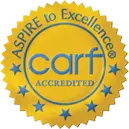Alternative Options Substance Abuse Treatment Programs provide comprehensive, intensive treatment where clients examine and begin to resolve their alcohol/substance abuse or dependency issues. Our goal is to provide an environment where clients can make the necessary emotional and behavioral changes in order to achieve sustained sobriety.
Our team of caring and experienced professionals will assist individuals and families in gaining insight into mental, behavioral, emotional, social, and spiritual aspects of addictive behaviors and associated issues.
Substance abuse treatment includes:
- Intensive Case Management
- Random Drug Testing
- Cognitive Behavioral Therapy (CBT) Groups
- Dialectical Behavioral Therapy (DBT) Groups
- Weekly Individual Therapy
- Family Therapy
- Psycho-Education Groups
- Music Therapy
- Yoga/Trauma Informed Yoga
- Significant Other Support Groups
- Linkages To 12-step Meetings In The Community
- Medication Evaluation And Management
- Aftercare Support For Relapse Prevention
What is Substance Abuse?
Substance abuse is when someone uses drugs, alcohol, or other substances in ways that are harmful to their health, safety, and well-being. It can lead to physical and mental health problems, difficulties in relationships, and troubles at work or school.

What Signs Indicate Substance Abuse?
Physical Signs
- Changes in appetite
- Unexplained weight loss or gain
- Bloodshot eyes
- Dilated pupils
- Unsteady gait
- Poor physical coordination
Behavioral Signs
- Neglecting responsibilities at home or work
- Withdrawing from family and friends
- Changes in social groups or favorite hangouts
Psychological Signs
- Increased paranoia
- Irritability
- Mood swings
- An unexplained change in personality or attitude
What Signs Indicate Substance Abuse?
- Increasing Dependency: You feel the need to use the substance regularly, either daily or multiple times a day.
- Failed Attempts to Quit: You’ve tried to stop using the substance(s), but couldn’t. This could be due to withdrawal symptoms, increased cravings, or a lack of support.
- Taking Risks: This involves using the substance even when it’s dangerous, such as before driving.
- Financial Trouble: This includes spending a significant amount of money on the substance, even if you can’t afford it.
- Relationship Issues: Your substance use causes problems with your loved ones.
Impact of Substance Abuse on the Community

Social and Economic Influences
- Economic Costs: Communities spend large sums on health care, law enforcement, and social care due to issues stemming from substance abuse. It also affects work productivity due to absenteeism, accidents, and decreased performance.
- Social Strain: There’s a greater demand for social services like counseling and rehabilitation centers. Substance abuse can lead to homelessness, creating further strain on social services and shelters.
- Crime Rates: Substance abuse can lead to increased crime rates, from possession and distribution offenses to crimes committed to support one’s addiction.
Health Implications
- Physical Health: Overuse of substances can lead to various diseases, from liver problems due to excessive alcohol consumption to respiratory issues from smoking.
- Mental Health: Substance abuse is closely tied to mental health issues. For example, 7.6% of US adults had both AMI (Any Mental Illness) and an SUD.3 Conditions like depression, anxiety, and psychosis often coexist with substance abuse, and recognizing this link is vital for treatment.
- Spread of Diseases: Sharing needles can lead to the spread of infectious diseases like HIV and hepatitis within the community.
Impact on Family and Relationships
- Strain on Relationships: Trust issues, conflicts, and broken communication can arise within families and between friends. It’s hard for loved ones to watch someone struggle, and it can lead to feelings of helplessness or anger.
- Children are Affected: 1 in 8 children live with at least one parent who has SUD.4 These children may face neglect, emotional or physical abuse, and may be more likely to develop substance abuse problems themselves in the future.
- Erosion of Support Systems: Over time, as relationships strain or break, the person may lose their primary support system, which can worsen their condition.
Community Safety Concerns
- Driving Under Influence: Accidents related to driving under the influence of alcohol or drugs endanger not just the driver but pedestrians and other road users. About 31% of traffic fatalities are due to alcohol-related road accidents.5
- Public Disturbances: Some substances can lead to aggressive behaviors, leading to fights, public disturbances, and other confrontational events.
- Overdose: There’s a risk of people overdosing in public spaces, which can be traumatic for community members, especially children, to witness.
The Most Commonly Abused Substances and Their Potential Impacts

Alcohol and Prescription Medications
Prescription medications, such as pain relievers, sleeping aids, and medications for anxiety, are designed to help with specific health issues. When taken beyond the recommended dose or without a prescription, they can lead to health complications, addiction, or even overdose.
Cocaine
Amphetamines
Hallucinogens
Marijuana
Depressants
Opiates
Inhalants
Tobacco
Substance Abuse Treatment at Alternative Options

What We Treat
- Alcohol
- Prescription medications
- Benzodiazepines
- Opiates
- Inhalants
- Hallucinogens
- Cocaine
- Amphetamines
- Marijuana and wax
Levels of Care
Outpatient Therapy
Outpatient therapy is a form of treatment where you attend sessions at our facility but continue to live at home. This means you can still carry on with your daily activities, such as work or school, while getting the help you need.
This is different from programs like the intensive outpatient program (IOP) or the partial hospitalization program (PHP) where the involvement and time commitment is greater.
Intensive Outpatient Program (IOP)
Partial Hospitalization Program (PHP)
PHP offers the most intensive form of care among the three. While still outpatient in nature, PHP usually involves daily therapeutic sessions for most of the day, five days a week.
Treatment Modalities and Services

Psychotherapy
Cognitive Behavioral Therapy (CBT)
Dialectical Behavioral Therapy (DBT)
Family Therapy
Substance abuse doesn’t only affect the user but also their family. Family therapy involves everyone and helps to:
- Rebuild trust
- Improve communication
- Find common ground in the journey to recovery
Psychoeducation Groups
Holistic and Supportive Therapies
Music Therapy
- Express emotions
- Reduce stress
- Connect with others in a group setting
Yoga/Trauma Informed Yoga
Other Support Groups
Ensuring Sustained Recovery
Random Drug Testing
Medication Evaluation and Management
Aftercare Support for Relapse Prevention
Discover Your Path to Recovery With Us
With every step you take towards recovery, we walk right beside you. Reach out today and discover the Alternative Options difference.
Resources
1 https://www.chcf.org/publication/2022-edition-substance-use-california/
2 https://www.cdc.gov/nchs/pressroom/sosmap/drug_poisoning_mortality/drug_poisoning.htm
3 https://www.samhsa.gov/data/sites/default/files/reports/rpt39443/2021NSDUHFFRRev010323.pdf
4 https://www.samhsa.gov/newsroom/press-announcements/20170824
5 https://www.nhtsa.gov/risky-driving/drunk-driving
6 https://www.samhsa.gov/data/sites/default/files/2022-12/2021NSDUHFFRHighlights092722.pdf



